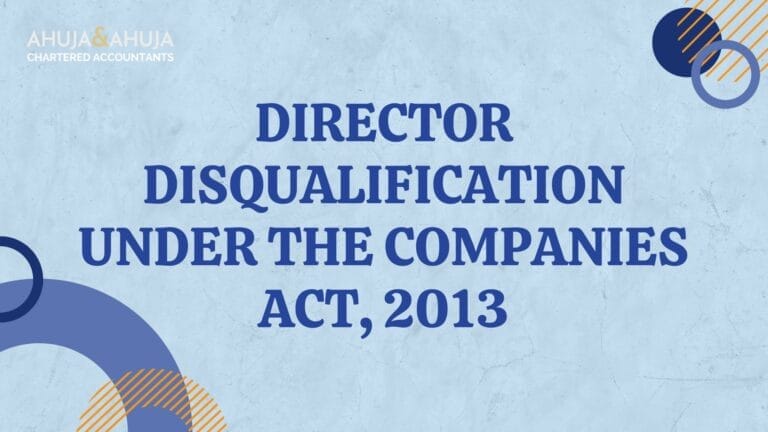Protection and Rights of Minority Shareholders from Oppression & Mismanagement under Companies Act, 2013
A joint stock company thrives on the collective investment of numerous shareholders. While major decisions within the company are taken by those who hold a majority of shares, the rights and interests of minority shareholders are equally fundamental to the company’s governance. In the modern business ecosystem, where more and more individuals are setting up their own companies, understanding the rights of minority shareholders becomes essential.
Minority shareholders, as the term signifies, are those who own less than 50% of the company’s share capital. Although such shareholders might may not wield significant decision-making power due to their less substantial shareholding, the Companies Act, 2013, parses out a cluster of rights to ensure they are not drowned in the ocean of majority control.
Through these protections, minority shareholders retain the ability to significantly influence the company’s operations and management, and in matters when their interests are at stake, they can act against company actions perceived as oppressive or mismanaged by the directors and majority shareholders.
Understanding Oppression and Mismanagement
In the realm of corporate governance, the notions of “oppression” and “mismanagement” often emerge as two major concerns. But what do these terms represent?
“Oppression” typically refers to an action or decision by the majority shareholders or the company’s management that is unjust or prejudicial to the interests of the company or its members, especially minority shareholders. Oppression may include actions such as discriminatory behavior, denial of dividend, exclusion from the decision-making process, or misapplication of company assets, which can adversely impact the minority shareholders.
On the other hand, “mismanagement” refers to the improper or inefficient handling of the company’s affairs, which is likely to cause material injury to the company or its members. Mismanagement might involve misappropriation of funds, fraudulent conduct, irresponsible decision-making, or the failure to comply with statutory obligations, such as annual return filing or statutory audit processes.
In some drastic instances, continuous mismanagement can even lead to the closure of the company. However, thanks to the Companies Act, 2013, minority shareholders have rights and remedies to prevent such scenarios.
The Rights of Minority Shareholders
Under the Companies Act, 2013, several provisions are in place to protect the rights of minority shareholders against oppression and mismanagement. These rights empower minority shareholders to take necessary action and seek redressal when their interests are compromised. Let’s explore these rights in detail:
- Right to File a Petition (Section 241):
Minority shareholders, holding at least 10% of the share capital or representing 1/10th of the total number of minority shareholders, have the right to file a petition with the National Company Law Tribunal (NCLT) under Section 241 of the Companies Act, 2013. This provision allows them to seek relief in cases of oppression and mismanagement.
- Grounds for Oppression and Mismanagement (Section 241):
The petition filed by minority shareholders can be based on the grounds of oppression or mismanagement. “Oppression” refers to conduct that is prejudicial to the interests of the company or its members, while “mismanagement” refers to the improper or inefficient conduct of the company’s affairs.
- Power of the Tribunal (Section 242):
Section 242 of the Companies Act, 2013, empowers the NCLT to make various orders to regulate the conduct of the company’s affairs. The Tribunal can issue directions for relief, such as the appointment of a new managing director or director, changes in the company’s articles, winding up of the company, or any other necessary action.
- Appointment of Nominee Director (Section 163):
Minority shareholders who have faced consistent oppression can exercise their right to appoint a nominee director under Section 163 of the Companies Act, 2013. This nominee director acts as a representative of the minority shareholders, safeguarding their interests within the company.
- Class Action Suit (Section 245):
Section 245 provides minority shareholders with the option to file a class action suit against the company or its directors for any fraudulent, unlawful, or wrongful act. This provision ensures that the collective interests of the shareholders are protected, allowing them to collectively seek justice against any wrongdoing.
- Inspection of Records (Section 163):
Minority shareholders have the right to inspect the records of the company under Section 163. This right enables them to gather evidence to support their claims of oppression and mismanagement. Access to relevant records can be crucial in building a strong case and seeking appropriate relief.
- Protection of Whistleblowers (Section 177):
Section 177 of the Companies Act, 2013, provides protection to minority shareholders who act as whistleblowers, bringing to light any unethical practices, fraud, or mismanagement within the company. This protection encourages minority shareholders to come forward with information that can help expose wrongdoing and initiate corrective measures.
These rights collectively empower minority shareholders to take proactive steps to protect their interests and ensure that the company operates in a fair and accountable manner.
Process of Exercising Rights
Understanding the process of exercising the rights available to minority shareholders is crucial for effective navigation of the legal proceedings. Here’s a step-by-step guide on how minority shareholders can exercise their rights under the Companies Act, 2013:
- Seek Legal Advice: Before initiating any legal action, it is highly recommended for minority shareholders to seek legal advice tailored to their specific situation. An experienced corporate lawyer can provide guidance on the best course of action and ensure that the rights of minority shareholders are protected.
- Collect Evidence: It is important to gather relevant evidence to support the claims of oppression or mismanagement. Minority shareholders should collect documents, records, and any other evidence that substantiates their allegations.
- File a Petition with NCLT: Minority shareholders who wish to seek relief under Section 241 must file a petition with the National Company Law Tribunal (NCLT). The petition should clearly outline the grounds for oppression or mismanagement and provide supporting evidence.
- Attend Hearings: Once the petition is filed, minority shareholders should attend the hearings scheduled by the NCLT. It is crucial to present their case effectively during the hearings, backed by the evidence collected.
- NCLT Orders and Remedies: Based on the merits of the case, the NCLT may issue various orders and remedies under Section 242. These may include directing the company to rectify the oppressive practices, appointing a new director, modifying the company’s articles, or even winding up the company, if necessary.
- Appoint Nominee Director, if applicable: In cases of consistent oppression, minority shareholders can exercise their right to appoint a nominee director under Section 163. The nominee director acts as a representative of the minority shareholders and works towards protecting their interests within the company.
It’s important to note that the legal process for seeking relief under the Companies Act, 2013, involves the involvement of the National Company Law Tribunal. Therefore, having a thorough understanding of the relevant provisions and seeking legal guidance is crucial for effective utilization of the rights available to minority shareholders.
Frequently Asked Questions (FAQs)
To address common concerns and queries related to the rights of minority shareholders under the Companies Act, 2013, we have compiled a list of frequently asked questions:
What constitutes 10% of the share capital?
Minority shareholders must hold at least 10% of the share capital of the company to exercise their right to file a petition under Section 241. This refers to the value of shares they own in relation to the total share capital of the company.
What evidence is required to prove oppression or mismanagement?
Evidence such as company records, meeting minutes, financial statements, email correspondence, witness statements, or any other relevant documentation can be crucial in building a case. The strength of the evidence will determine the credibility of the allegations.
What is the role of a Nominee Director?
A nominee director represents the interests of minority shareholders within the company. They have the responsibility to bring forward the concerns and viewpoints of the minority shareholders during board meetings and decision-making processes.
How does one file a Class Action Suit?
To file a class action suit, minority shareholders must gather a group of shareholders who have similar claims against the company or its directors. A lawsuit can then be initiated collectively, seeking legal remedies for the alleged fraudulent, unlawful, or wrongful acts.
What protections are offered to whistleblowers?
Section 177 of the Companies Act, 2013, provides protections to minority shareholders who act as whistleblowers. It safeguards them against any adverse action or retaliation for bringing to light unethical practices, fraud, or mismanagement within the company.
Disclaimer
The materials provided herein are solely for educational and informational purposes. No attorney/professional-client relationship is created when you access or use the site or the materials. The information presented on this site does not constitute legal or professional advice and should not be relied upon for such purposes or used as a substitute for professional or legal advice.







